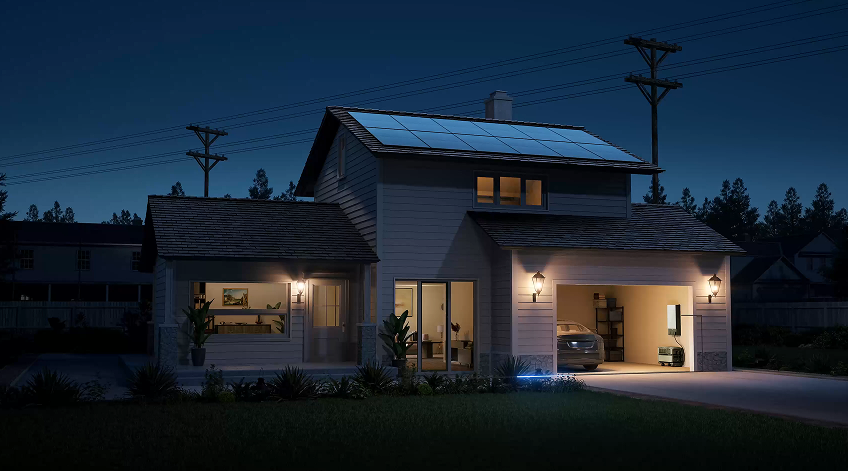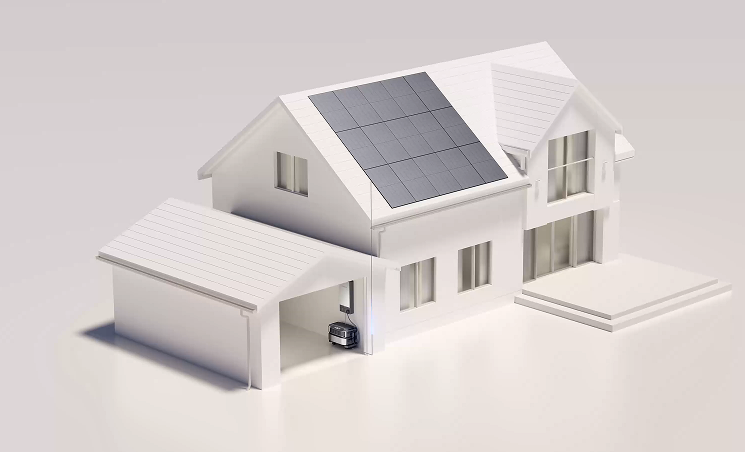How to Prepare for Power Outages in Michigan
Living in Michigan means experiencing a range of weather, and sometimes that includes power outages. These disruptions can affect your daily life, from minor inconveniences to more serious safety concerns. The good news is that by taking some practical steps beforehand, you can handle these situations much more effectively and keep your household safe and comfortable until the power comes back on. This guide walks through how to get ready for and deal with power outages in Michigan.
Why Power Outages Happen in Michigan and What They Mean
Knowing why outages occur and their potential effects is the first step in getting properly prepared.
Common Reasons for Power Loss
Several issues can lead to your lights going out in Michigan.
Severe Weather:
This is a primary cause. Winter often brings ice storms and heavy snow. Ice can build up on tree limbs and power lines, making them heavy and causing them to break. Deep snow can also bring down branches and lines.
- Spring, summer, and fall can see strong thunderstorms with high winds. Lightning can damage electrical equipment, and winds can knock down trees or large branches onto power lines.
- Tornadoes, though not as frequent, can cause extreme damage to the power grid in localized areas.
Equipment Problems:
Sometimes, parts of the electrical grid fail due to age or accidents. Transformers can blow, or issues can arise at substations. A car hitting a utility pole is another example.
Animals:
Squirrels, birds, or other animals can interfere with electrical equipment, causing short circuits and outages.
How Power Outages Can Affect You
Losing power is more than just an inconvenience. It can lead to:
- No lights, heating, or cooling: This can make your home uncomfortable or even unsafe, especially in extreme temperatures.
- Food spoiling: Refrigerators and freezers stop working, and food can go bad quickly.
- Water supply issues: If you have a well, your pump needs electricity. Sump pumps, which prevent basements from flooding, also need power. Even city water can sometimes be affected.
- Trouble communicating: Cell phone service and internet might be down or overloaded.
- Problems with medical devices: Anyone using electrical medical equipment (like CPAP machines or oxygen concentrators) will face challenges.
- Frozen pipes: In winter, a long outage can cause pipes to freeze and burst.
- Basement flooding: If your sump pump loses power during wet weather.


What to Do Before an Outage in Michigan
Good preparation makes a big difference when the power goes out. This means putting together an emergency kit, getting your home ready, and having a family plan that everyone understands.
Building Your Emergency Supply Kit
Stock enough supplies for everyone in your home for at least 72 hours, preferably a week. Organize your kit into four categories:
Basic Survival Needs
Store one gallon of water per person per day for drinking and sanitation, plus non-perishable foods that don’t require cooking. Include canned goods with a manual can opener, protein bars, dried fruit, and peanut butter. Pack a first aid kit with bandages, antiseptic, pain relievers, and a 7-day supply of prescription medications.
Power and Communication
LED flashlights offer the best battery life, while battery-operated lanterns provide room lighting. Headlamps free your hands for tasks. A battery-powered or hand-crank NOAA Weather Radio provides emergency updates. Keep portable power banks charged for cell phones, or consider a larger power station that can run small appliances and charge multiple devices for days.
Comfort and Sanitation
Michigan winters require extra warmth: blankets, sleeping bags, layered clothing, and hand warmers. For sanitation, pack moist towelettes, garbage bags, toilet paper, and hand sanitizer. Include cash in small bills since ATMs won’t work, plus books, games, or puzzles for entertainment.
Tools and Emergency Items
Round out your kit with a multi-purpose tool, duct tape, and a whistle to signal for help if needed.
Home and Property Preparations
Prepare your house with these key steps: Install surge protectors for valuable electronics and ensure carbon monoxide and smoke detectors have working battery backups. Test detectors monthly.
Generator Safety and Setup
For backup power, you have options. Portable power stations (large battery packs) are safer and quieter than generators - they can run indoors and power essential devices for hours or days. For whole-home backup, gas generators provide more power but require careful safety practices: never run indoors or in attached garages due to carbon monoxide risks.
Critical Systems Check
Ensure your sump pump works well and consider a extra battery to prevent basement flooding. Good insulation and weather stripping help maintain temperature during outages. Locate and learn to use your main electrical panel, water shut-off, and gas shut-off valves.
Preventive Measures
Trim branches near your home’s power lines (leave street-side lines to professionals). Keep your car’s gas tank at least half full since gas stations need electricity. When storms approach, fully charge phones, laptops, and power banks.
Developing a Family Emergency Plan
Everyone in your household should know what to do during an outage. Create a communication plan with an out-of-state contact person everyone can call if local lines are busy. Write down important phone numbers rather than relying on phones.
Establish meeting places - one inside your home and another outside if you need to evacuate. Address special needs for infants, elderly family members, those with disabilities, and pets. Include supplies like diapers or pet food and discuss backup plans for medical devices with your doctor. Practice your plan so everyone knows their role.
Staying Informed Before an Outage
Stay updated through local news and weather forecasts. Sign up for alerts from your utility company (DTE Energy or Consumers Energy). Know how to report outages and keep utility contact numbers or apps easily accessible.
What to Do During a Power Outage in Michigan
Stay cool and think about safety when the power goes out in Michigan. Michigan’s harsh winters and bad weather mean that you need to act quickly.
Report Outages and Check Neighbors
Call DTE Energy at (800) 477-4747 or Consumers Energy at (800) 477-5050 right away to report the failure. If you’re safe, check on your elderly or vulnerable friends. The extreme temperatures in Michigan make being alone dangerous.
Use Safe Lighting and Heating
Right away, use flashlights instead of candles because they could start a fire. If you use kerosene or propane heaters for alternative warmth, make sure they have enough air flow and are kept away from things that can catch fire. Never use a gas stove or oven to heat your home; carbon monoxide poisoning can kill you in a walled home in the winter.


Operate Power Equipment Safely
Generators should only be used outside, at least 20 feet away from your home, and CO monitors should be turned on inside. Snow and ice make it harder to stay safe, so make sure there is enough room. Generators should never be plugged straight into the wall.
Avoid Electrical Hazards
Be careful not to get too close to downed power lines; they could still be hot. Be careful when you’re outside because snow can hide broken lines. Call your power company or 911 to report downed lines. Unplug things to keep them from getting damaged by the power surge, but leave one light on to see when the power comes back on.
Preserve Food and Use Emergency Supplies
Keep refrigerator and freezer doors closed - a full freezer keeps temperature for 48 hours (24 if half-full), while refrigerators stay cold for 4 hours. Use snow outside as natural refrigeration for perishables in the winter, but make sure to properly seal things and keep an eye on temperatures. For long power outages, use the non-perishable foods in your survival kit.
Conserve Water and Prevent Pipe Damage
If you’re on a well system, conserve water since your pump won’t work. Municipal water can also be affected during widespread outages. In winter, frozen pipes compound water problems, so use water sparingly.
Control Indoor Temperature
- Stay Warm in Winter: Gather everyone in one room to conserve body heat and close off unused areas. Layer clothing, wear hats and gloves indoors, and use all available blankets. Block drafts under doors. For extended outages in dangerous cold, let faucets drip slightly and open cabinet doors under sinks to prevent frozen pipes.
- Stay Cool in Summer: Stay on your home’s lowest level where it’s cooler. Wear lightweight clothing and drink water frequently. For extended summer outages, locate public cooling centers to prevent heat-related illness.
Conserve Phone Battery
Use your phone only for essentials to preserve battery life. Rural Michigan areas may have limited cell coverage during outages.
Monitor Updates During Extended Outages
Listen to your battery-powered NOAA Weather Radio for weather updates and emergency information. If you have phone service and battery, check DTE Energy or Consumers Energy websites for restoration estimates.
Monitor local emergency broadcasts for warming center locations during winter outages, as hypothermia risks increase significantly when homes lose heat in Michigan’s sub-zero temperatures.
Special Considerations for Michigan Residents
Michigan’s conditions present a few specific challenges.
Long Cold Weather Outages:
Preventing hypothermia and frozen pipes is critical in Michigan’s sub-zero temperatures. Have a plan for alternative shelter if your home gets too cold - know warming center locations in your community. Stock your emergency kit with extra blankets, sleeping bags, and hand warmers. Frozen pipes can occur within 6 hours without heat.
Basement Flooding from Sump Pump Failure:
A battery backup for your sump pump is essential in Michigan, especially during spring thaw and heavy rain periods. Sump pump failures during outages frequently cause extensive flood damage in basements. Consider water-powered backup pumps as an additional option.
Ice Storms & Heavy Snow:
Michigan ice storms and lake-effect snow can cause multi-day outages affecting hundreds of thousands. Be ready for extended outages by stocking extra supplies - at least one week’s worth during ice storm warnings. Professional tree trimming is important to prevent branches from taking down power lines.
Utility Company Contacts:
- DTE Energy: (800) 477-4747, DTE Energy Outage Center online/app
- Consumers Energy: (800) 477-5050, Consumers Energy Outage Center online/app
- Municipal Utilities: Contact your city hall if served by local utility
Register with your utility if you have medical equipment requiring electricity - many offer priority restoration services.
Prepare for Power Outages in Michigan!
Being proactive about power outage preparedness reduces stress and risk. Regularly review and update your plans and kits – at least once a year or after an outage. Staying informed about potential threats and knowing what to do helps everyone in your household stay safer and more comfortable when the lights go out.